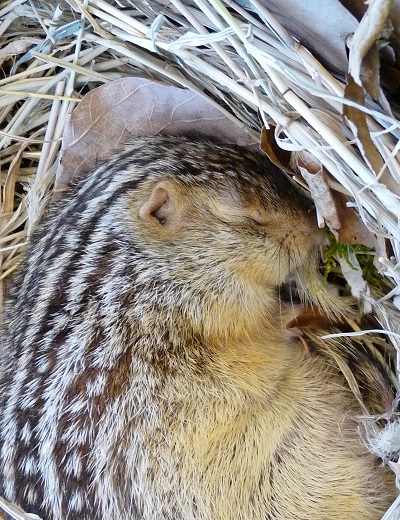Podcast: Play in new window

BOB HIRSHON (host):
Hibernation adaptation. I’m Bob Hirshon and this is Science Update.
Instead of migrating to warmer places for the winter, ground squirrels and hamsters simply hunker down and hibernate. Now, a study in the journal Cell Reports suggests that specially-adapted brain cells make the rodents less sensitive to cold than most mammals. This allows them to fall asleep as their body temperature drops without setting off alarm bells in the rest of their system.
ELENA GRACHEVA (Yale University):
They can reduce their core body temperature from 37 degrees to 4 degrees Celsius, which is incredible.
HIRSHON:
Yale University neurophysiologist Elena Gracheva’s team found that a molecule called TRPM8 in the rodents’ sensory neurons is unusually insensitive to cold.
GRACHEVA:
And because of this, squirrels and hamsters can hibernate.
HIRSHON:
The work could lead to better ways to prolong human organ storage for transplantation. I’m Bob Hirshon, for AAAS, the science society.
Story by Susanne Bard
